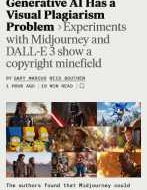Researchers from the Department of Oncology UNIL-CHUV published a new study in Immunity, showing that machine learning improves the prioritization of cancer specific mutations for cancer immunotherapy.
The study *, published in Immunity, was conducted by Markus Müller, a senior scientist in the Immunopeptidomics group headed by Michal Bassani-Sternberg, within the Human Integrated Tumor Immunology Discovery Engine (Hi-TIDe), part of the Ludwig Lausanne branch, which is directed by Pr George Coukos.
Some forms of cancer contain numerous mutations, but only a restricted subset, usually a few dozen, can be integrated into the immunotherapy strategy. Thus, the crucial stage in the immunotherapy process involves carefully choosing the mutations with the highest potential for a successful immunotherapy outcome.
The research team reprocessed extensive whole exome sequencing and RNAseq data from a large cohort of cancer patients with comprehensive neoantigen immunogenicity screening assay data. Going beyond conventional neoantigen prioritization features, the study identified key determinants such as neo-peptide location within HLA presentation hotspots, binding promiscuity, and the oncogenicity of the mutated gene, providing crucial insights into immunogenicity prediction.
Incorporating machine learning methods, the team developed classifiers that accurately predicted neoantigen immunogenicity across diverse datasets, enhancing neoantigen ranking by up to 30%. Moreover, the research has yielded standardized datasets invaluable for advancing and benchmarking companion algorithms in neoantigen-based immunotherapies.
This groundbreaking research opens new avenues for optimized cancer immunotherapies by offering a deeper understanding of neoantigen selection and its impact on immunogenicity, ultimately aiming to revolutionize cancer treatment strategies.
* Machine learning methods and harmonized datasets improve immunogenic neoantigen prediction



